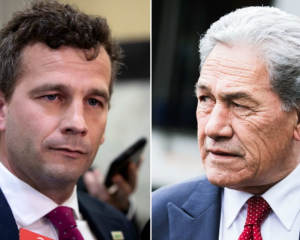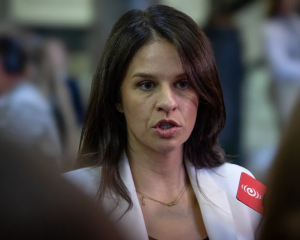The Government is one step closer to banning gang patches in schools, police stations and Work and Income offices.
The Prohibition of Gang Insignia in Government Premises Bill has passed its second reading tonight by 69 votes to 51.
National, NZ First, Act, United Future and Brendan Horan voted for the bill, while Labour, the Greens, the Maori Party and Mana voted against it.
Rotorua MP Todd McClay's bill makes it a criminal offence to wear gang insignia in government-owned premises, including local government.
The Law and Order committee were told last year that banning gang patches in schools, police stations and Work and Income offices would be too broad and would accidentally capture people who are innocently wearing gang colours.
The bill related to gang patches, and could include coloured clothing associated with gangs.
Labour MP Phil Goff said this will is a "nothing bill" and a "BS" bill that would do nothing to protect New Zealanders or stop the underlying gang problem.
"I can walk onto school grounds wearing a swastika, and nothing will be done to me."
Labour and Green MPs pointed out the bill would penalise a patched gang member at a covered bus stop, but not an uncovered bus stop.
Green MP David Clendon said the bill was purely cosmetic and would not tackle the underlying causes behind gangs. Labour's Andrew Little said the bill would only address the clothing worn by the gang member, and not their actions.
The bill lists gangs that will be covered by the ban, and new gangs would have to be added.
Law Society human rights and privacy spokesman Robert Hesketh told the select committee that insignia was too widely defined in the legislation and would capture clothing that was not intended to be intimidating.
The society felt the bill should not progress beyond the select committee stage but, if it did, it needed to be amended to tighten the definition.
Mr Hesketh noted the bill clashed with the Bill of Rights Act because it was inconsistent with the right to freedom of expression.
"One is reminded of that time-honoured mantra that one may not agree with what another person expresses, but certainly the right to have and convey that expression is guaranteed by our Bill of Rights Act," he said.
Mr McClay, the MP for Rotorua, earlier told the committee that the bill was not a "silver bullet" but would reduce the influence of gangs.
"This bill is drafted to reduce intimidation, offer greater protection to victims and law-abiding citizens, and ... is to focus on the harm and significant misery that gangs cause throughout all communities in all parts of New Zealand."
He said the proposed law change was influenced by the community marches against gangs in Murupara, which took place after the murder of a youth who was killed because his school uniform was the colour of a rival gang in the region.












